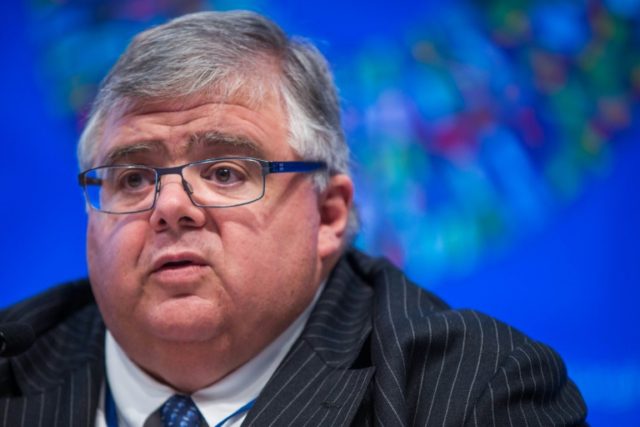Mexico City (AFP) – Mexico’s central bank chief Agustin Carstens resigned Thursday, officials said, sending the peso on its latest plunge since Donald Trump’s victory in last month’s US presidential election.
Carstens, who had compared Trump with a maximum Category Five hurricane because of his tough stance toward Mexico, will step down on July 1 next year, the Banco de Mexico said in a statement.
He will become director general of the Bank for International Settlements, the Switzerland-based bank for central banks.
Analysts describe Carstens as a steady and experienced hand at the tiller amid a period of volatility for Latin America’s second-largest economy.
A former deputy managing director at the International Monetary Fund, he became central bank chief in 2010 after serving as finance minister from 2006 to 2009.
The peso fell 1.19 percent Thursday after the news, to 21.05 to the dollar.
Mexico has found itself on the receiving end of some of Trump’s most virulent rhetoric.
The Republican billionaire launched his campaign attacking Mexican immigrants as “criminals” and “rapists” and vowing to build a wall on the southern US border.
Markets are nervous about the effect of Trump’s protectionist policies, including his vows to renegotiate the North American Free Trade Agreement, make Mexico pay for the proposed border wall and block remittances sent home by immigrants.
Trump takes office on January 20.
Analysts say the peso is also affected by the prospect of an interest rate hike by the US Federal Reserve later this month.
The Mexican currency plunged after Trump’s election on November 8.
The central bank slashed the country’s economic growth forecasts for 2016 and 2017 in the aftermath of the US election.
It also raised the key interest rate to tame inflation and curb market volatility.
The central bank admitted Thursday it was struggling to contain the storm.
Despite the rate hike, “financial markets displayed negative behavior… and the Mexican peso has depreciated around 17 percent this year, making it the most depreciated currency among a wide group of emerging countries,” it said.

COMMENTS
Please let us know if you're having issues with commenting.